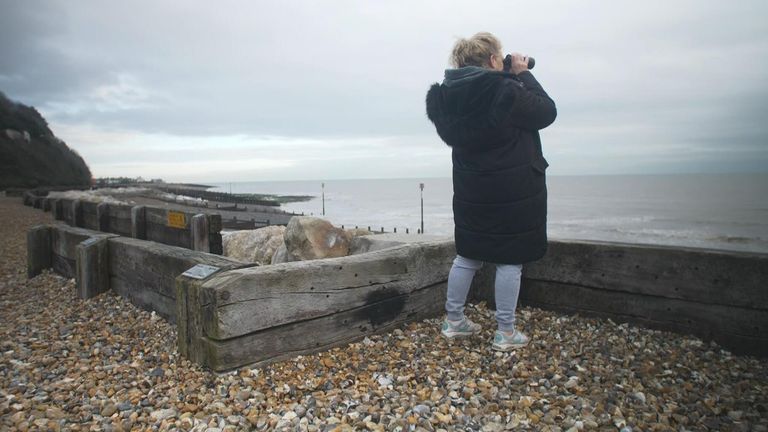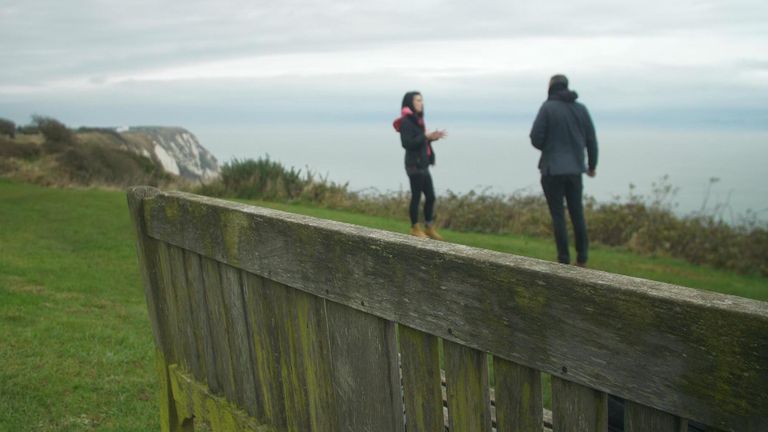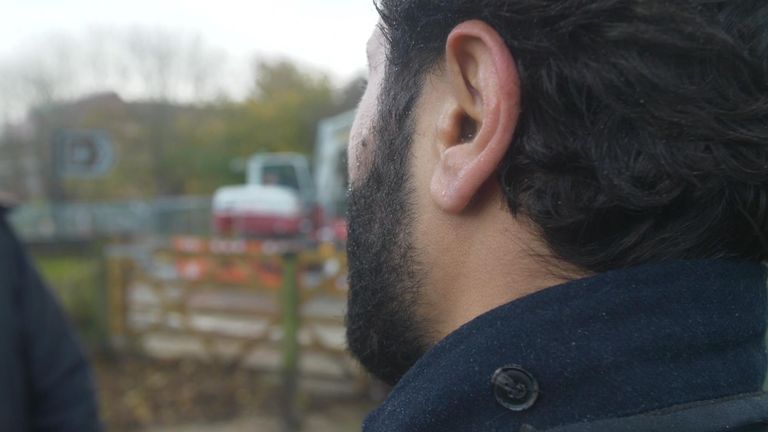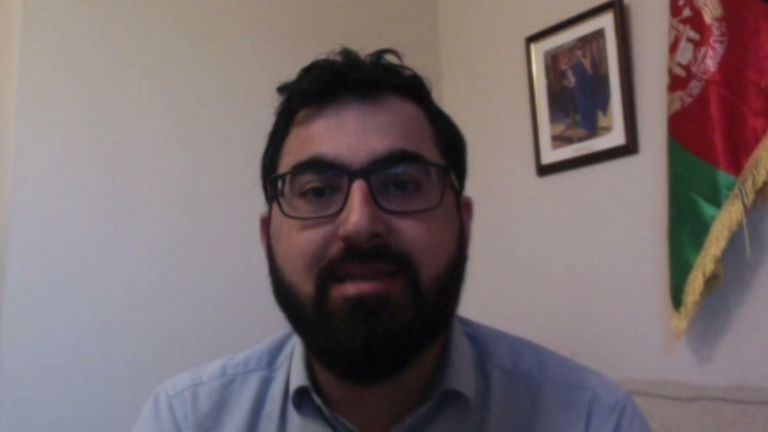Channel deaths: Two women in Kent have very different reactions to the crisis – but they do agree on one thing
Peering out from behind a massive pair of binoculars on Kingsdown Beach near Dover, Juliette Walford tracks the sea for migrants.
Born and bred in Kent, she sees herself as part of a new home front defending the coast.
Video cameras are also part of the armoury – she and other activists are angry at the constant arrival of boats.
Ms Walford said: “I think we feel slightly invaded, I think we feel quite scared because there is no regulations.
“I would like to see a proper secure process; if these people are running from war then we need to help them, but there are a lot of migrants that are not running from war.”
Everyone here, including Juliette, is shocked by this tragedy – but many agree with what she is saying, and there’s no doubt the immigration issue is driving politics here to the right in some quarters.
A short distance away, on another cliff, sits Kay Marsh from Channel Rescue.
Her volunteer group checks the weather and alerts the coastguard to any boats in distress.
Ms Marsh said: “This has always been a divisive issue here.
“It always will be because we’ll always have people arriving here because we’re on the coast.
“There are a lot of people that do really care and they do want to promote this welcoming in Dover, they’re just frightened because it is such a controversial issue.
“We need to see these people as human beings who are fleeing death, destruction, poverty and war.”
Two women, just a few miles apart, but their reactions to what they’ve been witnessing over the last few years could not be more different.
But they do agree on one thing: the government’s handling of this crisis has been disastrous and more will die at sea without a solution.
At the heart of all this are the migrants – nearly 26,000 human beings have arrived by boat across the Channel in the last year, a record number.
Some are accommodated at a former military barracks in Folkestone, but most are bussed out of the county – the North of England is often the destination.
Hushang Embrahimi is typical of the asylum seekers we met. An Iranian Kurd who converted to Christianity, he tells me he faced death threats and had to flee.
It’s a similar story from a group of Eritrean men – political persecution, they claim, was the reason they made the dangerous journey despite knowing they could lose their lives.
It’s impossible for us to know what is a genuine story and what is not, that is the role of the asylum process.
But Bridget Chapman from Kent Refugee Action Network says the Home Office is failing to deal with the numbers claiming sanctuary.
She said: “This is a problem entirely of the Home Office’s own making.
“There is enough accommodation, the problem is that asylum claims are not being processed quickly enough by the Home Office.
“They should take six months, but they’re actually taking 18 months minimum. Those people would normally move out of the accommodation and free it up for someone else, but that’s not happening which is causing all the problems with accommodation.”
In the seaside towns on the frontline of this crisis, people are fed up with the government’s response.
The home secretary, Priti Patel, may say the asylum system is broken.
But what they want to know here is why she hasn’t she fixed it.
Source: Read Full Article







